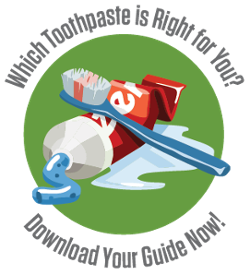By Tim Fitzgerald on Mar 23, 2020 @ 04:00 PM
As more cases of COVID-19 are identified, everyone is taking precautions to keep themselves, their families, and communities safe. But as the hype surrounding COVID-19 increases and your daily routine changes – it can be easy to forget about what the precautions we are taking really mean, and how to make the most of them to keep yourself safe, and to keep your spirits up too.
Social distancing and self-quarantining are two precautions that will affect your day to day life in the coming weeks. Here is some helpful info about them – and how to keep yourself happy and healthy when they are a part of your routine.
What is Social Distancing?
Social distancing is a set of precautions and behaviors implemented to help you and the members of your community minimize the risk of being exposed to a spreading illness like COVID-19. It includes not shaking hands, avoiding crowds, staying home when you feel sick, and limiting your interactions with other people. But social distancing isn’t just your actions. Businesses across the U.S. are social distancing by having employees work remotely, changing their work hours, and changing how they operate. Educational institutions are also getting involved by closing down schools and taking in-person classes to virtual classrooms.
For your daily life, social distancing is a mentality that you’ll want to turn on for the coming weeks. Avoid unnecessary shopping and larger gatherings, stay a few steps back when you’re around people outside your home, and be conscious about your social interactions.
But how do you stay sane when you’re reducing your social interaction so much every day? Well, make sure that you remember social distancing doesn’t have to mean social isolation. Instead of staying alone with your screens, jump on Facetime or Skype with your family and friends – or take date night virtual and watch a movie with your significant other across town. Make sure to get the social engagement you need while taking social distancing seriously!
What is Self-Quarantine?
Self-Quarantine is when you refrain from being in contact with anyone outside of your home for a 14-day period. During times like the COVID-19 outbreak, it’s important to take this time if you were in direct contact with someone who has the virus. Self-Quarantine is also for the safety and protection of others so the virus doesn’t contaminate and continue to spread. These measures include:
- Staying Home: Don’t go to work, school, or any public areas. If you need medical care, call your healthcare provider and let them know you could have COVID-19 before going in – and make sure they know any symptoms you are having and that you had contact with someone who had COVID-19.
- Travel: Avoid all public transportation and travel, including taxis and ride sharing. Don’t risk contaminating others!
- Hygiene: Wash your hands - OFTEN. Use soap and water for at least 20 seconds and always wash your hands after coughing or sneezing. And don’t forget about your oral hygiene.
- Cohabitation: If you live with family or friends, try and keep yourself separated from physical contact as much as possible – stay in your room and use a separate bathroom.
But keep in mind that even if you don’t show symptoms, you could still have COVID-19 if you have had contact with someone else who has it. There are a few cases of people who have it that are asymptomatic. This means that it’s especially important to self-quarantine and seek medical advice from your doctor.
Social distancing and self-quarantine might be a big part of our lives in the coming weeks – but they don’t have to ruin your day. Remember to keep yourself stimulated and reach out to your family and friends, even if you’re staying isolated. It can make a world of difference to your mental health! If you’re working from home in the coming weeks, check out our FREE video on how to make the most out of your time working at home!
And don't forget your oral health during this time. You might not feel comfortable sitting in the dentist's office for the next few weeks, so make sure to take extra good care of your teeth. For some tips on choosing the right toothpaste to keep your oral hygiene in tip-top shape, check out our FREE guide below.





comments